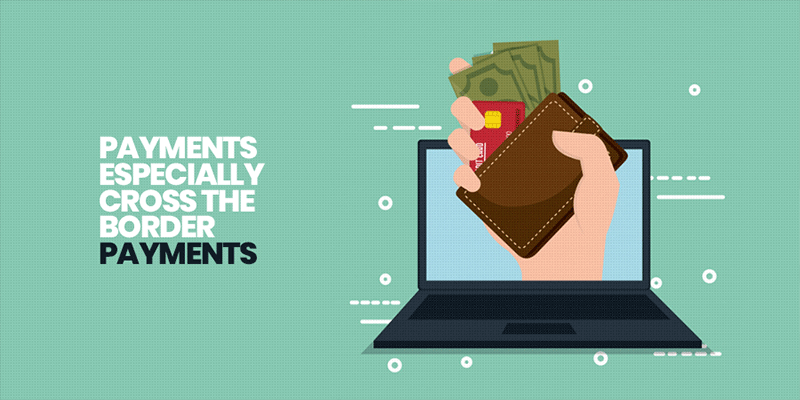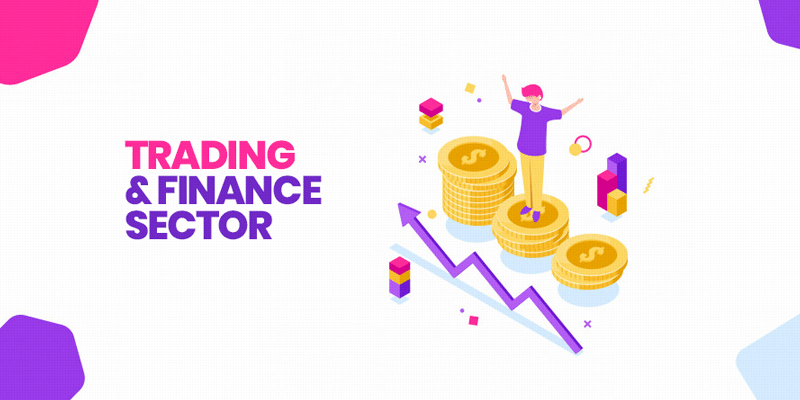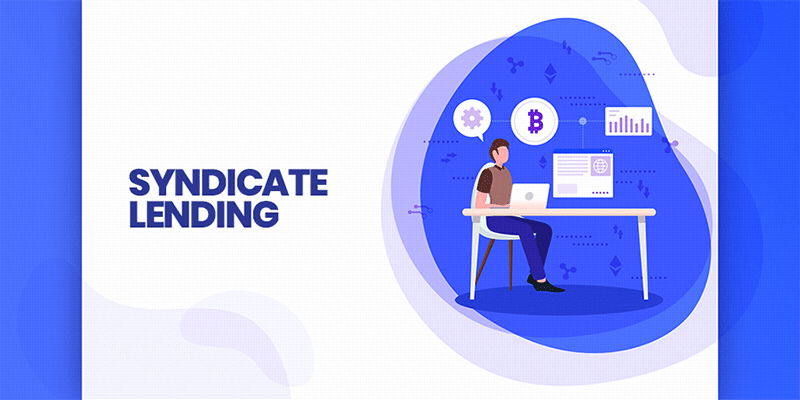“ Blockchain Technology “
Creating opportunities to recreate the banking world.
Since, its inception in 2008, the blockchain revolution has been setting the footprints for the change it can bring in different business spaces. Even during, its infancy, its rattling features like decentralization, transparency, and stability make Blockchain an appealing option for businesses and financial sectors.

Nevertheless, there is numerous bottleneck in the way at present,
but it is for sure predicted that Blockchain technology holds the potential to rewrite the banking and finance sector by eliminating labor-saving and potential costs.
As per the PwC report, 24% of critical financial players across the globe are well-known with Blockchain technology. Thus, observing the trend and wide-reaching applications of blockchain technology, the software development company is in the constant run for researching ways to harness Blockchain technology in different sectors.
Being the uproar, “ the bank and finance sector,” there is a massive number of transactions and funds that are being transferred from one place to another daily. This is what makes the Global Financial System, one of the most popular choices to be benefited from the applications of Blockchain technology.
Blockchain Alliance With Banking Sector
With a quick – sneak peep of Blockchain technology and how it works, the real challenge whim into our minds is “Is The Alliance A Healthy Investment”?
Yes!
Undoubtedly, it is useful in the banking sector, but how to use it for the best possible outcome? And the most important among all, is Blockchain here for a visitor to stay?
In the exclusive survey at Harvard Business Review, Blockchain will be that turning point to the banks that the Internet has done to media. So, when it comes to banks and financial organizations, Blockchain holds the capacity to solve many potential problems.
Read more: Enormous Advantages of Onshore & Offshore Outsourcing
What Are The Alluring Capabilities Which Make It a Reliable Choice?
Blockchain technology consists of a sheath of all the attractive characteristics, which are the imperatives to look for while investing money. It is secure, safe, decentralized, transparent, and as well as affordable.
Blockchain technology proffers an unmatchable level of security and safety when it is to transfer data, funds, and credential information. Through its transparent nature, it makes the top choice among users accompanied by minimum operational cost and the help of its decentralized nature.
As you know, financial organizations work to keep your money and funds safe and secure for the public. Moreover, this process needs a significant number of mediators too. The involvement of these mediators is what makes this industry a particular choice. And, with more the number of people involving, the chances of fraud and breaches also rise exponentially.
Therefore, blockchain technology tends to do some substantial body weight-lifting by safeguarding the transactions and making the overall customer experience unforgettable and less expensive.
Now, we shall bounce back to the most popular domain of Blockchain technology, i.e. Finance, and see how Blockchain is revolutionizing banking.

Payments, Especially Cross-The-Border Payments
Payments are the early entrants to be used for any banking sector or financial system. And, when it is to Blockchain finances, both public and commercial banks across the world are laying their firm step into this technology because of payment processing and in the future issuing their digital currency.
This trend also drifts towards cross-border payments, which were powered by Swift or Western Union until now.
- Advantages: Cross-border payments are more easily accessible and affordable in comparison to conventional systems with bank Blockchain.
- Disadvantages: If cross-border payments are made with cryptocurrencies, it can commence certain safety-related risks. For instance, if you are transferring cryptocurrency funds from one country to another by using blockchain technology financial services, and one of the service providers goes bankrupt, or their security is breached, the funds will be gone, and no central authority like banks will be liable to fill the loss.
Also, there can probably be problems with cryptocurrency exchange into local currency at the present place due to fluctuating exchange rates.

Stock Market & Share Trading
Stock Exchange or Market is the hot potato in today’s world. And, not to forget buying and selling shares and bonds are the vitals. But, mostly the buying and selling have always been between third-party people, such as stockbrokers and the stock exchange itself. ‘
Have a look at how trading works:
- The purchaser or seller starts the deal.
- The broker transmits an amount to the stock exchange.
- The transaction matches with the counterparty.
- Further, the transaction is sent to the Central Counterparty Clearing house for risk analysis.
- The respective representative aligns with the Central Securities Depository to safeguard the transfer.
- Lastly, the transaction is sent to the Registrar or to the Transfer Agent of the initial trade to update their list of stockholders.
Seeing yourself, the conventional sock exchange process includes various stages, and even bureaucracy can take up to three days. Nevertheless, the decentralized behavior of Blockchain technology for the banking sector proves to be a boon. It eliminates all the unnecessary intermediaries and enables trading to be done on computers from anywhere and anytime.
No more need for dedicated servers that are clutched into the interconnected server system.
- Advantages: The commences of Blockchain technology reduce the redundancy of information and simultaneously improve performance. As an outcome, the small number of transactions can be easily handled outside the blockchain, and just the final transaction is recorded to the blockchain without any intermediate steps.
- Disadvantages: “Private Keys” are the demur Blockchain can impose on the trading sector, even the required variables for the digital signature that are easy to steal and get lost.
So, making sure to have the signatures of all the parties before agreeing upon a transaction will help you prevent the keys from being stolen and the owner from being breached.

Trading & Finance Sector
The latest software development services have helped Blockchain cement its footprint in the trading and finance sector. Not just the stock exchange, but the financial activities that are associated with commerce as well as international trades.
In today’s technology era, many trade-related activities still work on many paperwork like bills, lading, invoices, etc. and it consumes a lot of time also. There has been a switch to an online management system to continue the paperwork online, but still, it seems like sitting on the fence.
- Advantages: The amalgamation of Blockchain technology can streamline the entire process by getting rid of all the hassle-occupied paperwork. This technology eliminates the need for numerous copies of the same document and can include all the essential information in one digital certificate, and it is also kept updated by the validated network members in real time.
- Disadvantages: As Government sanctioned, for example, in trade embargoes, it is impossible to convert the trade transaction information into Blockchain format for the parties who don’t use this platform.
Validated Digital Transactions
Whether you are looking for an offshore development company, or are planning to hire mobile app developers, make sure they have experience in the Blockchain field.
Nowadays, online financial transactions are impossible without ID verification. Regardless of lot of steps, it includes. Such as
- Face-to-face checking (Sometimes a skype or a video call)
- Authentication – The client of the bank needs to prove their identity every time they log in for their services.
- Validation – The client’s intention proof is needed.
These steps are necessary to be taken for every new service provider. Irrespective, Blockchain technology makes it possible to re-use the identification validation for other services too securely.
- Advantages: Use of Blockchain in Fintech, users can choose how to identify themselves and with whom they want to share their identity. They need to register their status on the Blockchain, but there is no need to repeat the registration for each of the service providers if the Blockchain also powers those.
- Disadvantages: The standards for identity verification for the Blockchain field are still being developed. After the information is updated on the Blockchain, anyone in the network can access it.
So, make sure the user should limit any personal or private information and data that they don’t want to disclose.

Syndicated Lending
Syndicate lending is the process referring to providing loans to a person by a group of lenders, especially a bank (Syndicate). With huge participants involved, the conventional processing of such syndicate loans may take up to 3 weeks.
The challenges usually faced by the banks during the process are:
- KYC (Know Your Customer) – client identity verification
- AML (Anti-Money Laundering) & BSA (Bank Secrecy Act) – are the legal actions pointed at detecting, preventing, and registering money laundering cases.
To make it a better and streamline the process, hire a Blockchain software developer that makes it not just better and more streamlined but more transparent. Moreover, with the blockchain technology of a decentralized ledger, the banks within the syndicate can share tasks related to queries to general compliance, and KYC to a single customer block.
Instant Settlements
With the Blockchain revolution in financial services, the software and android app development company is looking for more options to harness the technology.
As above discussed, the modern methods for spot trading are not a quick and instant process. Even, though the core idea behind spot trading is only for the immediate delivery of the trade equipment, but it usually, requires 2 to 3 days to settle the significant transactions.
Improvised Contractual Performance
With smart contract usage being done in banks and financial institutions, it automatically upsurges the contractual term performance.
How?
Smart contracts execute automatically certain pre-set conditions and meet them accurately and precisely. Due to this, R3CEV has altered the use of smart contracts within the validated and distributed ledgers.
In The End… We have listed a few of the Fintech startups which are solely based on Blockchain to disrupt the banking era. So, let’s have a quick run-down as to how the Blockchain revolution will be a boon to the banking and finance sector:
- Security
- Data integration
- Minimal cost and faster transaction process.
- Eliminating the paperwork and bureaucracy
- Transparency
So, if you are also on the firing line will Blockchain be re-inviting the new banking and trade sector – “ Who knows “ as the pioneer software development company is sketching new paradigms in every to-and-fro.
However, in any case, if the tidal wave of Blockchain technologies has already led a firm step forward in the banking and trade industry to develop something new, align with the best professionals, or Hire Android or iOS App developers with track-proven experience and curious minds.
